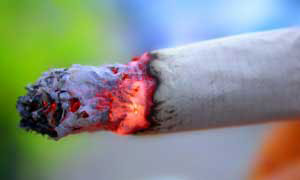No butts about it
October 1, 2009
 It’s official: If you’ve got ‘em, don’t smoke ‘em. That’s now the law in Los Angeles County’s public parks and golf courses.
It’s official: If you’ve got ‘em, don’t smoke ‘em. That’s now the law in Los Angeles County’s public parks and golf courses.
With evidence mounting about the dangers of secondhand smoke, county officials have banned smoking at more than 125 county parks and facilities, including the Hollywood Bowl and the Ford Amphitheatre, and sharply restricted it in the nation’s largest municipal golf course system.
The county joins numerous other California cities and counties in imposing smoking restrictions in parks that are tougher than state law.
“Ninety-five percent of our facilities are now smoke-free from curb to curb,” says Mika Yamamoto, Unincorporated Areas Liaison in the executive officer of the Department of Parks and Recreation.
Now parks officials are working on making signs and informing staffers, volunteers and sports league representatives about the new policy. They also are setting up meetings with concessionaires about establishing designated smoking areas.
The move to ban smoking in Los Angeles County’s parks was initiated last year in a motion by Supervisor Yaroslavsky and approved by the board. The motion asked the directors of the public health and parks and recreation departments to study the health and fiscal implications of a proposed smoking ban and to report back.
Their report recommended an outright ban on smoking at all local community and regional parks, arboretum and botanic gardens, equestrian centers, natural areas and sanctuaries.
But the recommendations stopped short of calling for an end to smoking at the county’s 19 golf courses. Operators of municipal golf courses throughout the region contended that such a ban could lead to fewer visitors and thus be economically harmful. The report recommended instead that smoking be prohibited in areas where people congregate, including driving ranges and practice areas such as putting and pitching greens. The ordinance went into effect Oct. 22.
The parks department is expecting a positive response to the ban—even from smokers.
“We believe that most often people will say, ‘Oh I didn’t know’ or ‘Thanks for letting me know.’ We’re anticipating getting a lot of cooperation,” Yamamoto says. “Most people want to do the right thing.”
The latest effort to protect the public from the demonstrably harmful effects of secondhand smoke is the logical next-step to a county policy adopted in 2004 that banned smoking at beaches.
“The creation and adoption of a smoke-free policy in county parks,” Yaroslavsky said in his motion, “is another important step towards improving the health of our children and families.”












 405 bridge work causes a stink
405 bridge work causes a stink
